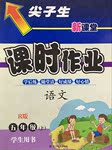题目内容
【题目】Three Ways to Protect Yourself From Today’s Unreal News
Nowadays with so much news available, many people consume media in an automatic, unconscious state-similar to knowing you drove home but not being able to recall the trip. 【1】. These strategies can help you become wiser news consumers in three simple steps.
Seek out your own news
Like most people, you probably get a fair amount of your news from social media. You should change that. Their goal is to maximize the time you spend on their sites and apps, getting advertising income. That means instead of presenting you with the most important news of the day, social media feed you what will hold your attention. 【2】. These organizations actually produce news, usually in the spirit of serving the public interest.
Use basic mathematics
Untrustworthy news often use some data to make unreal claims. 【3】. For example, a widely spread rumour (谣言) falsely claimed 10,150 Americans were killed by illegal immigrants in 2019. On the surface, it’s hard to know whether it is true, but one way to start is to think about finding out how many total murders there were in the US in 2019.
【4】
Humans are biased (倾向性的) to believe what’s in front of their eyes. Video content is considered more trustworthy-even though some videos can be very misleading. 【5】. Seeing and hearing should not necessarily be believing. Treat video content with just as much doubt as news text, checking any facts with news from a trusted source.
A.Watch out for biases
B.Believe video content
C.You’ll see a more complete range of information
D.Think carefully about how you determine something is true
E.Instead, regularly visit trusted news apps and news websites directly
F.Simple mathematical calculations can help you better spot false data
G.However, you can develop habits to control your news intake more consciously
【答案】
【1】G
【2】E
【3】F
【4】A
【5】D
【解析】
这是一篇议论文。讲述了如何明智地吸收信息的三种方法。
【1】
前文提到“Nowadays with so much news available, many people consume media in an automatic, unconscious state-similar to knowing you drove home but not being able to recall the trip”,意为“现在人们有大量信息可以接触到,我们以一种无意识的状态消化信息,就像你知道自己是开车回家的但是想不起来过程”,后文提到“These strategies can help you become wiser news consumers in three simple steps”,意为“这些措施能帮助你简单几步成为更明智的信息接收者”,前后句意相反,所以空格处应为转折句,起到承上启下的作用,G项“但是,你可以培养自己更有意识地控制信息吸收的习惯”切题,故选G。
【2】
后文提到“These organizations actually produce news, usually in the spirit of serving the public interest.”,这些组织确实会生产新闻,通常是以服务公众兴趣为精神,所以这些组织是提供新闻的,由指示代词these可知,在这些组织在前文中就已提到,所以空格处应提到这些真正提供新闻的组织,且在空格之前提到很多社交媒体并不真正提供当天最重要的信息,而是吸引你的注意力从而达到打广告的目的,空格前后句意相反,所以空格处应有转折词,E项“相反,你应该直接访问受信任的新闻软件和网站”切题,故选E。
【3】
根据小标题“Use basic mathematics”可知F项“简单的数学计算可以帮助你更好地识别错误的数据”切题,故选F。
【4】
根据第一句“Humans are biased (倾向性的) to believe what’s in front of their eyes.”可知,本段主题与bias(偏见)有关,所以A项“注意偏见”切题,故选A。
【5】
根据后文“Seeing and hearing should not necessarily be believing. Treat video content with just as much doubt as news text, checking any facts with news from a trusted source.”可知,这部分是在讲即使是视频信息也要报以足够的怀疑,对来自受信任来源的信息也要检查,这是讲如何确定得到的信息是真实的,所以D项“仔细想想如何确定某件事是真实的”切题,故选D。
对于一些七选五的小题,根据空格前后的名词、动词等对应选项中相同、相近或相反的词语就可以选出答案,例如第三题中小标题中的“mathematics”对应F项中的“mathematical”,故选F项。再例如第四题中第一句中的“biased”对应选项A中的biases,故选A。

 尖子生新课堂课时作业系列答案
尖子生新课堂课时作业系列答案 英才计划同步课时高效训练系列答案
英才计划同步课时高效训练系列答案